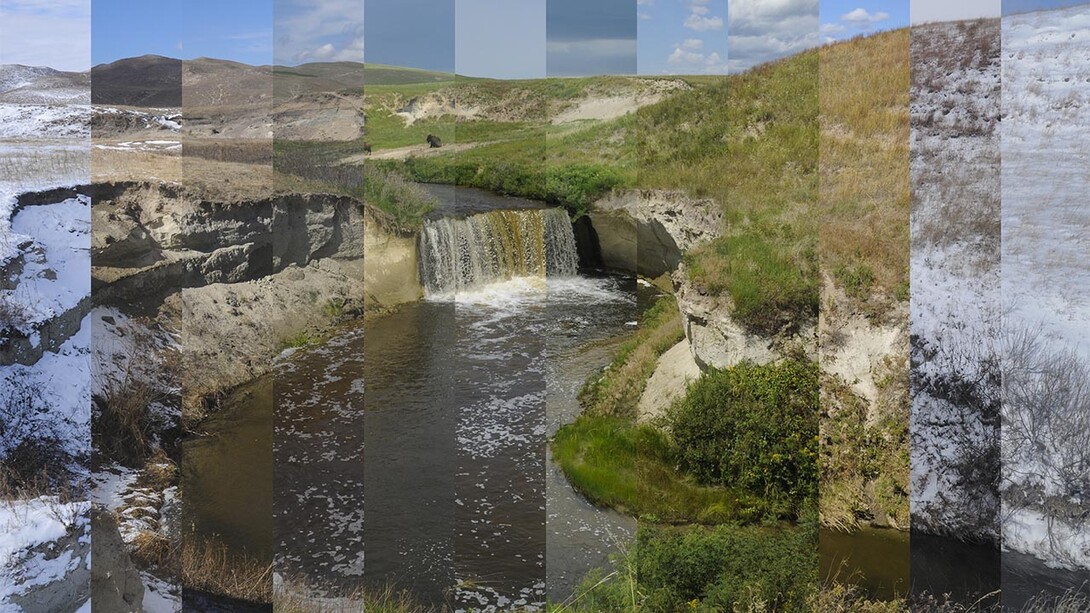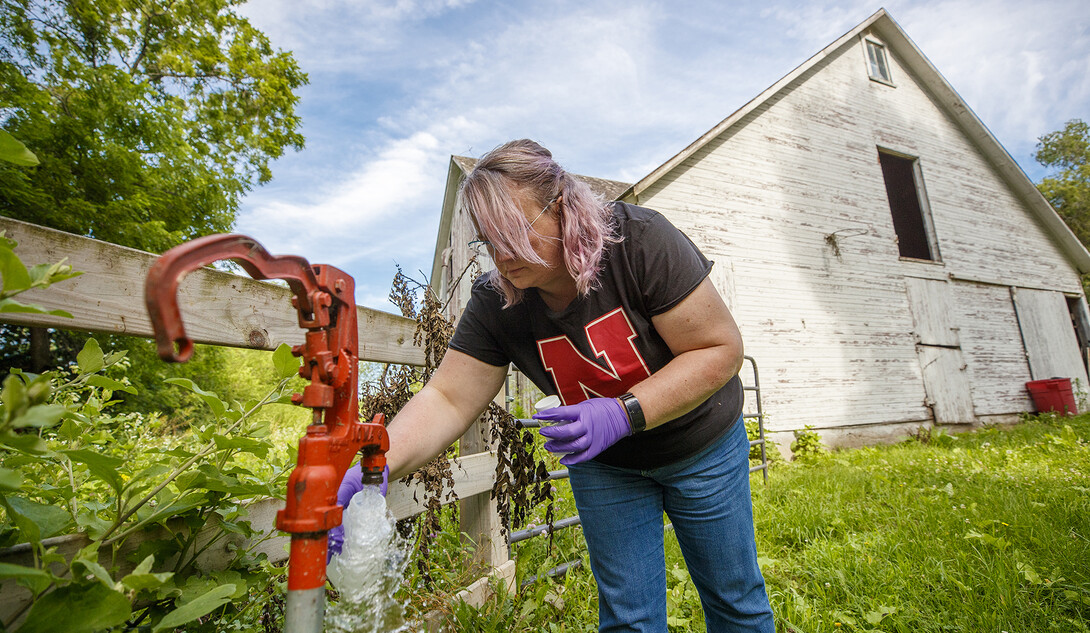
Statewide impacts of the University of Nebraska’s Daugherty Water for Food Global Institute may receive a boost from state lawmakers.
The Nebraska Legislature’s appropriations committee is considering LB 1026, a bill that (as proposed) would provide $2.5 million annually through 2022 to support water and agriculture-based research led by the Daugherty Institute. Sponsored by Sen. Kate Bolz (District 29), the bill was discussed during a Feb. 12 hearing led by Sen. John Stinner (District 28), chair of the appropriations committee.
Chancellor Ronnie Green and Peter McCornick, executive director of the Daugherty Center, were among those who testified in support of the legislation.
“This critical state investment in research strengthens our state’s focus on innovative water resource management that protects water quantity and quality. It also ensures a sustainable future for Nebraska,” Green said. “The Daugherty Water for Food Global Institute is vital to building, supporting and growing the water and agricultural research partnerships we need to continue this life-changing work.”

Launched in 2010 through a 15-year gift from the Daugherty Foundation, the institute today includes more than 120 associated faculty fellows researching more than 500 water and food security projects in 58 nations. The faculty fellows include 114 researchers from the University of Nebraska–Lincoln.
Research and outreach by Daugherty Institute fellows is helping increase efficiency of water use in crops and livestock systems; improve groundwater quality; and strengthen ag operations by integrating modern technologies and related services.
In his testimony, Green outlined how the university has (between 2003 and 2011) made $11.8 million in investments — primarily faculty hires, equipment purchases and other resource needs — in the Daugherty Center. The investments include $4.5 million supporting the Nebraska Water Sciences Laboratory, which provides analysis services to the state, federal and private entities through the Nebraska Water Center.
“These timely and strategic investments grew our strength and breadth not only in water research, but in collaborative work focused on the intersection of water and food issues,” Green said.
McCornick outlined the Daugherty Institute’s reach across the Cornhusker State — from using real-time meteorological data to increase efficient use of irrigation and leading groundwater and soil contamination studies to working directly with municipalities to improve groundwater quality and collaborating with ag operators to better integrate new technologies and services.
“The institute is tackling these challenges head-on through collaborative research, education policy advice and communication,” McCornick said.
Funding from the university has enhanced the institute’s progress, leading to grant-funded studies on major cereal crops in 55 countries and studies on stressed watersheds. One of the watershed studies includes a focus on the Platte River Basin, which flows from Wyoming and Colorado and across Nebraska to the Missouri River.
“The (Platte Basin Timelapse) project includes supporting the research of more than 50 doctoral students from different disciplines,” Green said. “They are future leaders who will develop innovations in managing and conserving our food and water.”
Those graduate students are among dozens from the University of Nebraska system who have gained team-based, experiential learning experiences on their way to earning a degree.
“We are building a community of students and young professionals who are pursuing water- and agriculture-focused careers,” McCornick said. “From working with growers in Nebraska, to advising federal and multilateral agencies, to international experiences studying water globally, our alums continue to be placed in roles that strengthen Nebraska.”
Green and McCornick stressed that a funding commitment from the state would allow for further expansion of projects and partnerships aimed at protecting Nebraska’s water resources — which include a nation-leading 80,000 miles of rivers and streams, and some 3.25 billion acre feet of water in the Ogallala Aquifer.
“Funding through LB 1026 will enable the institute to intensify and expand research in ways to increase crop and livestock production while conserving inputs and natural resources,” McCornick said. “This is a critical juncture where a small investment will make a tremendously positive impact in Nebraska’s future.”
Additional support for LB 1026 during the Feb. 12 hearing included in-person testimony from Roric Paulman, owner and operator of Paulman Farms in Sutherland, and 18 letters from constituents and Nebraska organizations. The letters included backing from the Nebraska Farm Bureau, Nature Conservancy, Valmont, multiple natural resources districts and former U.S. Senator Mike Johanns. No testimony was delivered against the proposed legislation.







